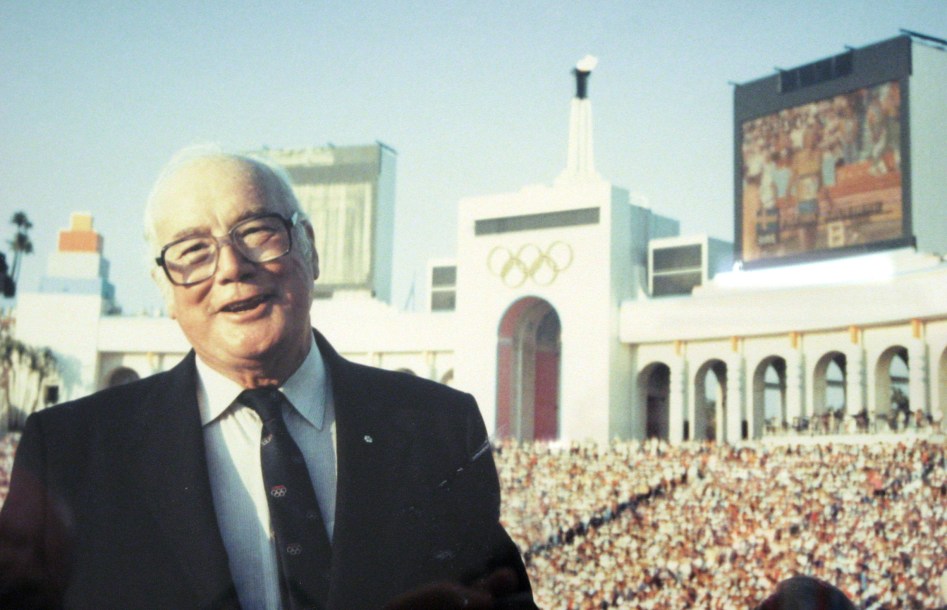Celebrating Olympic Day With Jim Worrall, On His 95th Birthday
Twenty years to the day before Jim Worrall was born, so too was the modern Olympic Movement. It is as if fate entwined Canada’s longest-serving Olympian and Olympic statesman with the origin of the International Olympic Committee (IOC) he would later join.
Today is Olympic Day and today Worrall turns 95 years old. (He is believed to be the country’s second-oldest living Olympian next to Marjory Saunders at 96, a 1972 Olympic archer.) It is Olympic Day because, as Worrall explains, on June 23, 1894 France’s Baron Pierre de Coubertin inspired a group of concerned citizens to consider an organization that would create a series of Games to be held in the future. The concept became the IOC.
Olympic Day is a reminder that the Games represent more than thousands of athletes competing against one another. There are ideals behind the Games, revised and touched up over the last century, that blend sport with education and culture, rooted in ethics and respect, seeking a way of life based on the joy of effort.
And who better to share Olympic Day with than Worrall, who has a storied history in the Olympic Movement. He was president of the Canadian Olympic Association (and remains honorary life president). Long-time member of the IOC, including executive member. Chairman of the committee that revised the Olympic Charter. One of the chief organizers of Canada’s two previous Games, Montreal 1976 and Calgary 1988. Canada’s Chef de Mission twice and Assistant Chef twice. Officer of the Order of Canada. Member of three Sports Halls of Fame. Canada’s Flag Bearer at the 1936 Olympic Games. Hurdler.
At the beginning of that storied history, Worrall remembers his first footsteps in sport. After his family moved to Montreal from England in 1920, Worrall started winning elementary competitions in high jump and both low and high hurdles. “I was reasonably proficient in track and field,” he said.
In high school, he continued to excel in city track meets. Enrolled at McGill University, a track coach had heard of his abilities in high school and asked Worrall to report for track and field. For McGill he ran two low hurdles distances as well as high jump, also competing in the Montreal Amateur Athletic Association as well.
Worrall became friends with Phil Edwards, who had “done well” at the 1928 and 1932 Olympic Games. (He won four bronze medals.) Worrall made Team Canada for the 1934 British Empire Games (later the Commonwealth Games), his first major competition. He ran the high hurdles. “I managed to squeak through to a silver medal,” he said.
Two years later, Worrall was an Olympian. Into the Opening Ceremony of the Berlin 1936 Olympic Games, he carried the Canadian flag. “That’s my real claim to fame,” he said. “I suspect it was because I was the tallest guy on the team.” He competed in the 110- and 400-metre hurdles but did not reach either final.
Worrall continued his involvement in sport, a path dictated by his enjoyment of athletics and his desire to stay active. This led down a path to his amazing achievements in Canadian and international sport. (He was also a successful lawyer.)
Worrall said he firmly believes in sport as a valuable activity that helps people realize a sense of worth, of accomplishment, of value. He said it’s important for children to get involved in sport, helping them acquire skills and confidence along with a sense of healthy competition. “That is,” he said, “fundamentally the idea of the Olympic Movement.”
For the Olympian, who still lives in Toronto and holds an office at the Sport Alliance of Ontario, amateur sport and Olympism is an extremely beneficial concept for those who take part it in seriously and honestly.
“When you talk about the ideals of fair play and honesty these days, it sounds a little old fashioned,” Worrall said. “And I’m old fashioned, 95 going on a century. I was brought up on some of these ideals as being good things. I haven’t discarded them.”
He said he expects a very good Winter Games next year in British Columbia. Worrall said he encourages “owning the podium” as a goal, but acknowledges that it will be difficult in the face of global competition. “Some of these winter sports were invented well before they immigrated to Canada,” he added.
Incidentally when asked which winter sport he would like best to compete in, Worrall said: “I’d try bobsleigh, so I could just sit down.” A few minutes later he changed his mind to snowshoeing.


